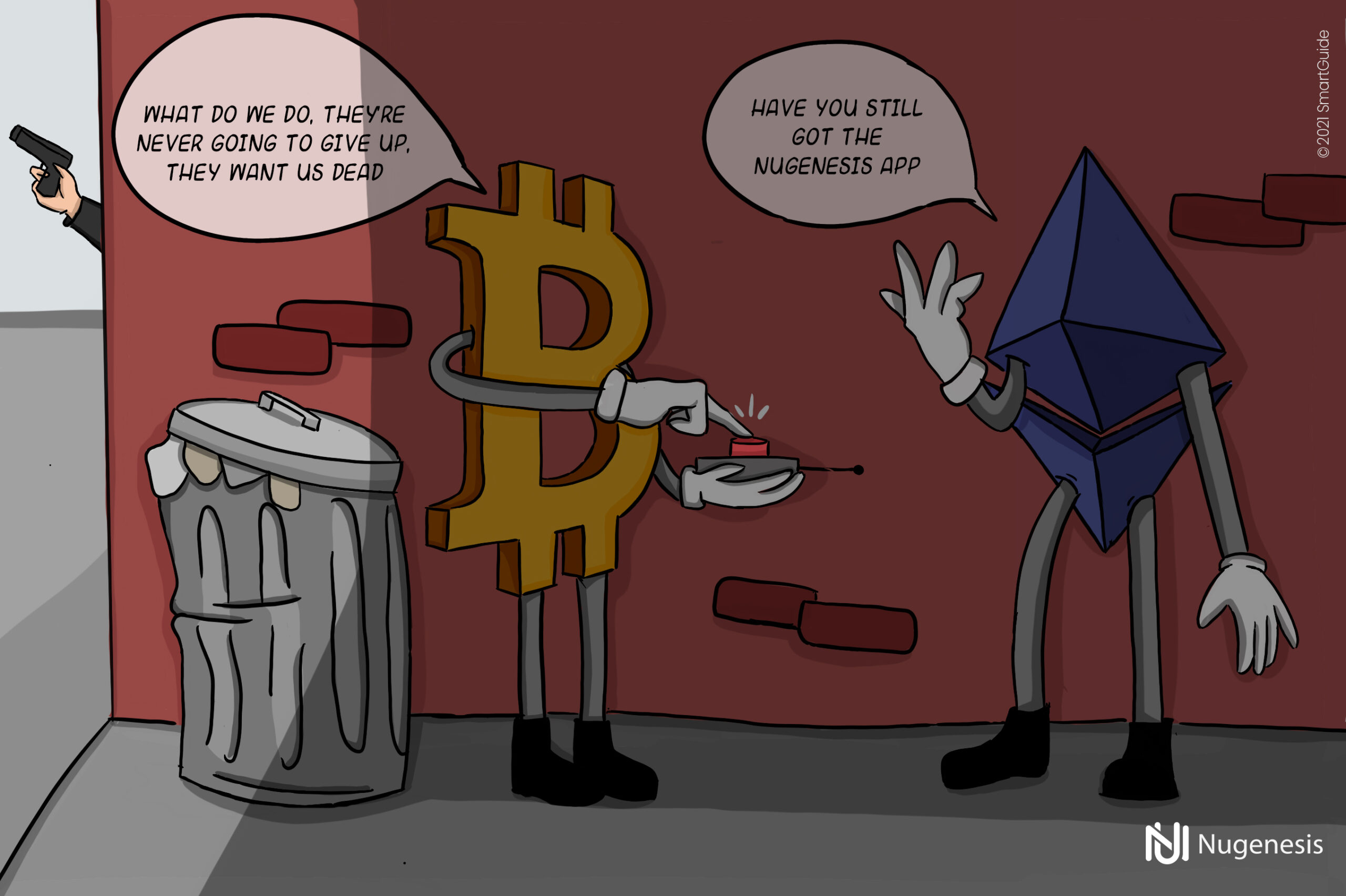Islamic scholars have long had major issues with whether cryptocurrency is permissible, and is it equal or more appropriate to Islamic finance than Fiat?
All Monotheism religions have strict rules around finance, and it historically defines currency as commodities with intrinsic value — gold, silver, metals, tradable products, etc.
Some may argue that government-issued fiat currencies do not have any intrinsic value and may be incompatible with a careful interpretation of Sharia law. This would pose a problem for the burgeoning Islamic finance industry, which aims to produce financial returns in compliance with religious law.
While this argument has been discussed, the majority of the religious rulings on cryptocurrencies and the use of blockchain based monetary systems are still ambiguous at best. The system in some instances is seen as a gamble and as such, many such currencies are platforms are not permissible under any Monotheism law.
Several platforms have attempted to tap into the Islamic finance space, although have failed to meet the basic principles of a non-usury system.
Cryptocurrencies may hold the key to a better implementation of Islamic banking.
Islamic economics stipulate that money must be earned through fair and legitimate work instead and not through exploitation or non-permissible means.
It is estimated that Islamic finance accounts for $2 trillion a year and is poised to “reach over $3 trillion in 2024” according to Gulf Business. Considering that the global population of Muslims is “expected to increase by 70% – from 1.8 billion in 2015 to nearly 3 billion in 2060” according to Pew Research Centre, financial services geared towards Islamic sensibilities are certain to continue attracting capital.
Much of the rules of Islamic banking, works around the concept of riba (usury). This makes paying or earning interest not permissible. With strict regulation on gambling, many religious authorities believe that certain cryptocurrencies and trades are a form of gambling and therefore are not permissible under Islamic law.
Any cryptocurrency that has unreasonable risk or cryptocurrency which are based on speculation and memes, fit the description of gambling or excessive risk, therefore not permissible.
NuGenesis DNCs allow Non-Usury Finance surge for Crypto markets while upholding the principles of Monotheism financial practices, opening the way for future application of Islamic and non-usury Banking.
NuGenesis tech fosters Non-Usury Finance to see a surge of capital into crypto capital markets. NuGenesis’ layer 2 Non-Usury Finance Defi is now easy to build. With its innovation beyond smart contracts, NuGenesis Digital Notarised Contracts (“DNCs”) give the flexibility needed for non-Usury money and financial instruments to balloon crypto capital markets.
The crypto economy has enjoyed a phenomenal growth in value. For instance, we saw $USD 2.5 trillion in market Cap, and there is $40B locked in Defi. The Defi space is poised to be the greatest growth area in crypto markets and enjoy the greatest returns in the second wave of the bull run through 2021.
Smart Contracts offer the trust-less exchanges of value through self-executing protocols and the most exciting developments have been in Defi. You can yield farm, stake, borrow or lend. Indeed, you can even lend and be paid to borrow crypto only to stake it again: triple-dip on your earnings.
The problem however is that smart contracts are neither smart, nor contracts. They are some two lines of code that we hope a programmer can encapsulate the essence of the transactional exchange. Whilst that is hard enough to achieve, bugs are inevitable, and “exploits” are routine. We hear about an exploit hack on the Binance Smart Chain every few days. Defi platforms, for all their promise to create life-changing wealth for a new generation, are plagued with insecurity.
NuGenesis has built its layer 1 blockchain ecosystem where dApp developers are no longer trapped by smart contract limitations. NuGenesis calls its tech “DNC’s” that allow the vast variables that occur in modern business life to be incorporated within DNC so that it is more like a suite of full contracts which the Artificial Intelligence (‘AI’) compiles, monitors and executes.
The Non-Usury world forbids interest. Instead, non-usury ally compliant financiers need to share risk and have “skin the game” with the projects they fund. NuGenesis rails offer Layer 2 dApps development of Non-Usury-Defi for the vast non-Usury money to enter the Crypto markets. It is the ‘turbo charge’ needed to fund the evolution of crypto tech.
NuGenesis CEO, Hussein Faraj says:
“The ‘NU’ in NuGenesis, is “non-Usuary”. Non-Usury compliance is our ground floor design principle. Non-Usury finance will propel projects where the funder and Defi investors need to succeed to make their return. Therefore, these projects are more likely to be successfully realised. Non-Usury Defi investors are less likely to lose on responsibly overseen projects and more likely to enjoy reliable and predictable profits. With more money coming in and more successful outcomes, there is more comfort overall to attract mainstream institutional investors”
NuGenesis has been designed to take the primary conditions of all Monotheism religions and to create a system of services as well as non-usury trade and financial services.
When interviews and asked “where do you see the future of non-usury platforms”
NuGenesis CEO, Hussein Faraj said:
“There is still a long journey ahead, for any financial system to be compliant, although every journey starts with a single step, as a nation and its people are caretakers of there own wealth, The day has come, when usury has become the hindrance of innovation. Therefore, the practices of non-usury systems will become crucial, for the evolution of any nation. Here at NuGenesis we have taken that first step.”
Image(s): Shutterstock.com
The post Nugenesis Ecosystems – Upholding the Principles of Monotheism Financial Practices, Paving the Way for Future Application of Islamic and Non-usury Banking appeared first on NullTX.



